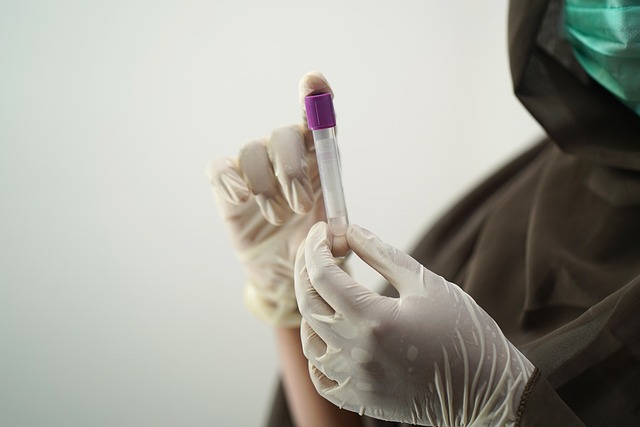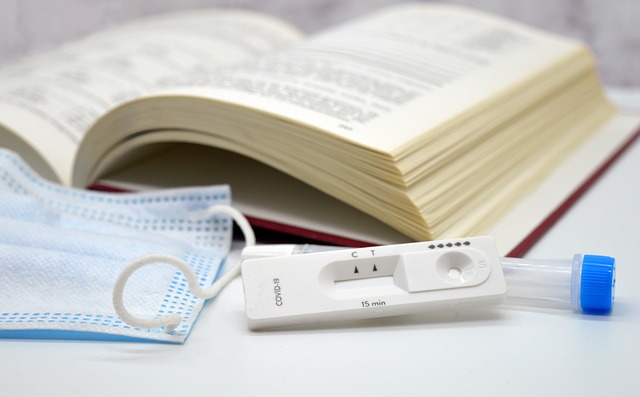The UK General Health Blood Test is a critical diagnostic tool for evaluating male reproductive health by assessing key hormones such as testosterone, follicle-stimulating hormone (FSH), luteinizing hormone (LH), and estradiol. This comprehensive blood test helps healthcare professionals diagnose and manage conditions like hypogonadism and hormonal imbalances by providing insight into fertility, sexual function, and overall reproductive health. It plays a vital role in identifying issues such as low libido, infertility, or erectile dysfunction by monitoring hormone levels that influence male reproductive tissues, sexual characteristics, and spermatogenesis. The UK General Health Blood Test is essential for personalized care, enabling tailored treatment plans that may include lifestyle changes or hormone therapies to improve health outcomes in males. Its use in diagnosing fertility disorders, combined with semen analysis, emphasizes the importance of understanding hormonal interactions and the value it adds as a foundational diagnostic step in male reproductive health management within the UK context. Regular monitoring of these hormones, in conjunction with assessing lifestyle factors, is crucial for comprehensive management of male fertility and reproductive well-being.
Exploring the complexities of male reproductive health, this article delves into the significance of hormone level analysis as a diagnostic tool. With a focus on the UK General Health Blood Test, we unravel how it serves as an accessible gateway to understanding androgen and estrogen levels in men. This insight paves the way for targeted interventions in addressing fertility challenges. Subsequently, we examine how integrating hormonal assessments with lifestyle factors can lead to a holistic approach in managing male reproductive health concerns. Through this comprehensive analysis, readers will gain valuable knowledge on the role of endocrine evaluation in the modern medical landscape.
- Understanding Male Hormone Levels through the UK General Health Blood Test for Reproductive Health Diagnosis
- The Role of Androgen and Estrogen Analysis in Addressing Male Fertility Issues
- Integrating Hormonal Assessment with Lifestyle Factors for Comprehensive Male Reproductive Health Management
Understanding Male Hormone Levels through the UK General Health Blood Test for Reproductive Health Diagnosis

Male hormone levels play a pivotal role in reproductive health, and their measurement can provide valuable insights into a man’s overall well-being. The UK General Health Blood Test is a comprehensive diagnostic tool designed to assess a wide range of hormones and parameters relevant to male reproductive function. This test includes the evaluation of key hormones such as follicle-stimulating hormone (FSH), luteinizing hormone (LH), testosterone, and estradiol, among others. These hormones are instrumental in regulating sperm production, sexual function, and overall reproductive health. For instance, testosterone, a primary male sex hormone, is responsible for the development of male reproductive tissues and secondary sexual characteristics. Its levels can indicate whether a man is experiencing issues such as low libido, infertility, or erectile dysfunction. The UK General Health Blood Test provides healthcare professionals with a clear picture of a man’s endocrine status, enabling them to diagnose and manage conditions like hypogonadism, hormonal imbalances, and other reproductive disorders effectively. By identifying these issues early, interventions can be tailored to the individual’s specific needs, improving treatment outcomes and quality of life. The test’s results are interpreted within the context of normal reference ranges established for the male population in the UK, ensuring accurate diagnoses and personalized care.
The Role of Androgen and Estrogen Analysis in Addressing Male Fertility Issues

In the realm of male reproductive health, the analysis of androgen and estrogen levels plays a pivotal role in diagnosing fertility issues. Androgens, primarily testosterone, are key to male sexual differentiation and the maintenance of spermatogenesis—the production of sperm. A decline in androgen levels can lead to oligospermia or azoospermia, conditions characterized by abnormally low or no sperm in the semen. Similarly, estrogens, though typically present in much lower concentrations in men, also influence reproductive health; imbalances can affect spermatogenesis and libido. In the UK, General Health Blood Tests are routinely used as a first step in assessing hormonal profiles. These tests measure levels of testosterone, luteinizing hormone (LH), follicle-stimulating hormone (FSH), and estradiol, providing comprehensive data to identify the root cause of fertility challenges. This information enables healthcare providers to tailor treatment strategies, ranging from lifestyle modifications to hormone replacement therapies, thereby enhancing the chances of conception for couples facing infertility issues.
Understanding the interplay between androgen and estrogen levels is crucial for pinpointing male fertility disorders. When deviations from the norm are detected through a UK General Health Blood Test, further diagnostic procedures such as semen analysis can be undertaken to complement the hormonal findings. The integration of these tests allows medical professionals to construct a detailed picture of an individual’s reproductive health status. This holistic approach facilitates early diagnosis and intervention, improving prognosis and increasing the likelihood of successful fertility outcomes for men with reproductive issues.
Integrating Hormonal Assessment with Lifestyle Factors for Comprehensive Male Reproductive Health Management

In the realm of male reproductive health, understanding hormonal balance is pivotal for effective management and diagnosis of potential reproductive issues. In the UK, General Health Blood Tests are a foundational tool in this process, providing insights into androgen levels, which play a critical role in male reproductive function. These tests measure key hormones such as testosterone, luteinizing hormone (LH), and follicle-stimulating hormone (FSH), offering a window into the body’s endocrine status. Integrating these hormonal assessments with comprehensive lifestyle evaluations allows healthcare professionals to tailor interventions that address both the biological and environmental factors affecting fertility. Lifestyle factors, including diet, exercise, stress levels, and exposure to endocrine-disrupting chemicals, can significantly influence male reproductive health. By considering these elements in conjunction with hormone levels, clinicians can develop more nuanced treatment plans that not only address the symptoms but also aim to improve overall wellbeing and fertility outcomes. This holistic approach underscores the importance of a multifaceted strategy that includes regular monitoring of hormonal markers alongside an individual’s lifestyle patterns, thereby enabling personalized care for optimal male reproductive health management in the UK.
In concluding our discussion on male reproductive health, it’s evident that analyzing hormone levels through the UK General Health Blood Test serves as a pivotal diagnostic tool for identifying and addressing fertility issues. The interplay between androgen and estrogen assessment offers valuable insights into underlying reproductive health concerns. Integrating this hormonal evaluation with an understanding of lifestyle factors further enhances the management of male reproductive health, leading to more effective treatment strategies. For those experiencing difficulties in this area, consulting healthcare professionals who can interpret these tests is crucial for a thorough diagnosis and personalized care. The UK General Health Blood Test stands as a significant advancement in diagnosing reproductive issues, underscoring the importance of comprehensive hormonal analysis in maintaining men’s health.
